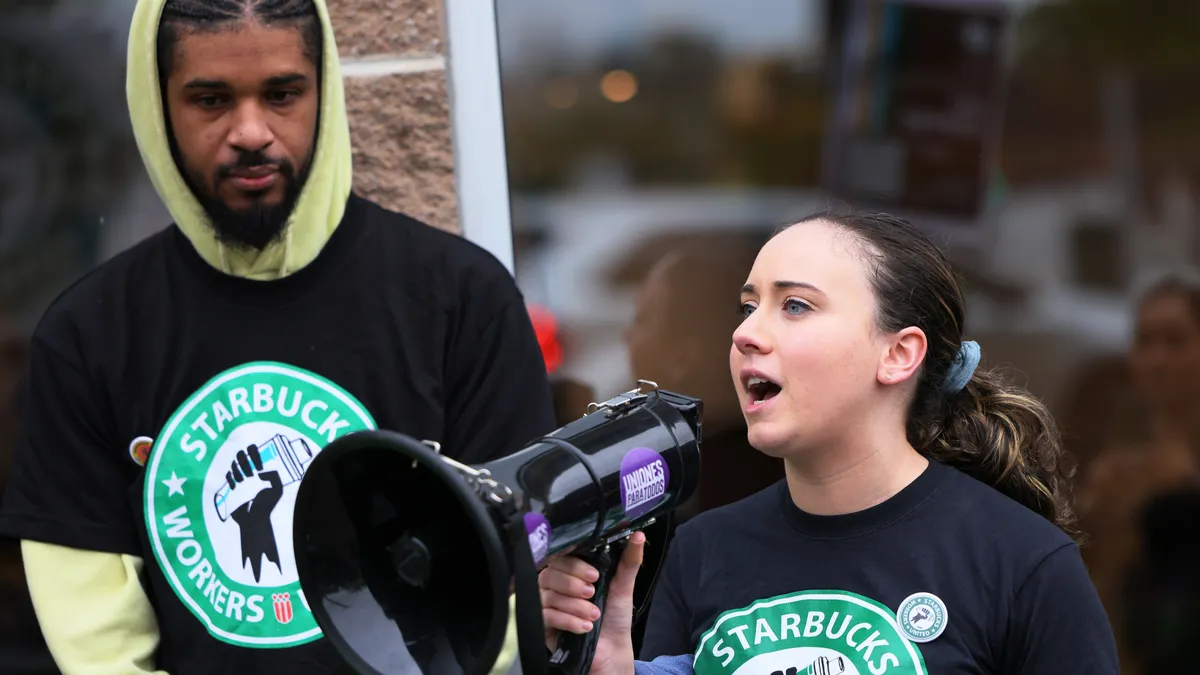Dive Brief:
- In two rulings Friday, administrative law judges for the National Labor Relations Board determined that Starbucks fired one worker for protected union activity in Louisiana and disciplined workers in New York City for wearing union insignia and QR codes using “an overly broad rule restricting the use of logos, writings or graphics” on clothing.
- In the Louisiana case, Starbucks fired a shift supervisor and union supporter in May 2022 for turning off Uber Eats orders and closing a store several hours early over staffing issues.
- Both cases have been transferred to the board for review, the final step in the process for adjudicating unfair labor practice charges, barring an appeal to federal court.
Dive Insight:
In the Lousiana case, the shift supervisor’s decision to shut the store early after consulting with other workers about staffing levels constituted a strike over working conditions, the NLRB’s general counsel suggested and administrative law judge Geoffrey Carter concurred. Judge Carter ordered the company to offer to reinstate the fired shift supervisor and to compensate the worker for missed pay.
The New York case is similar to previous cases where the NLRB found the company’s policy barring graphic tees, including those with the union’s logo, was too broad. Union T-shirts have been something of a flashpoint since before SBWU won a single election; one worker in upstate New York was written up for wearing a union shirt in November 2021. Administrative law judge Michael Silverstein suggested the board order Starbucks to stop “maintaining its unlawful dress code rule regarding the display of logos, writings, and graphics,” and not enforce that dress code selectively against union supporters.
Both cases were initiated in 2022, illustrating the length of time it takes the NLRB to resolve unfair labor practices. Starbucks recently asked the Supreme Court to weaken the NLRB’s power to seek Section 10(j) injunctions, which are federal court orders that enjoin unfair labor practices while the NLRB carries out its investigative process. At the same time, the company and the union began meeting in April to negotiate on issues of universal import to workers before bargaining store specific contracts.
Starbucks, in a message to Restaurant Dive, said it was reviewing the ALJ decisions.
“Our focus continues to be on training and supporting our managers to ensure respect of our partners’ rights to organize and on progressing negotiations towards ratified store contracts this year,” the company said.
Starbucks Workers United did not immediately respond to a request for comment.














